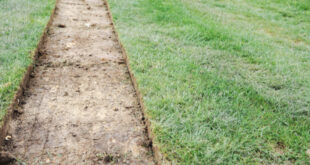Residents and businesses in nine Inland Valley cities are being asked to minimize water usage from Monday, April 23 through Saturday, April 28 when deliveries from a regional water line are suspended while the state repairs upstream water works. The shutdown will impact imported water supplies for upwards of one million residents.
Consumers from La Verne on the west to Fontana on the east are being asked to refrain from outdoor watering and to practice other water conservation methods during the Rialto Pipeline shut down. Many of the affected communities depend on imported water supplies; the temporary loss of water during the shutdown will require these communities to rely exclusively on their local water supplies.
The Rialto Pipeline shutdown is unique in that most water agencies have at least a year in advance to plan and prepare for a waterline shutdown. The Inland Valley’s Rialto Pipeline shutdown was scheduled after state officials identified the need for the repair in January.
“We’re asking all of our residents to rise to the challenge during this temporary, six-day shutdown and make an extra effort to limit their water use,” said Halla Razak, Inland Empire Utilities Agency’s (IEUA) general manager. “With the potential of warmer spring weather, in order to ensure water is available during this critical repair work, we are recommending cutting back significantly on all outdoor watering.”
The pipeline is the only source of imported water for communities served by the IEUA, which relies on Metropolitan water for about 30 percent of its water supply needs. Three Valleys, which uses Metropolitan water for up to 60 percent of its needs, has the ability to receive imported water through an alternate Metropolitan pipeline.
IEAU, Three Valleys Municipal Water District (TVMWD) and local retail agencies are joining with Metropolitan Water District (MWD) of Southern California are making the water-saving request as MWD suspends deliveries through the Rialto Pipeline. In addition to La Verne and Fontana the other impacted cities will include Chino, Chino Hills, Claremont, Montclair, Ontario, Rancho Cucamonga and Upland. Consumers within these cities are being asked to contact their local water supplier to determine water-use restrictions in their specific city.
“This is a critical repair to state facilities that will help ensure the reliability of our water supply for years to come,” said Jim Green, MWD’s water system operations manager. “Conservation by residents and businesses in the affected communities is essential to the successful completion of the repair work.”
IEAU, TVMWD, local retail agencies and MWD are recommending the following water-savings tips:
Prior to Monday, April 23
- Do not plant new landscaping, which typically requires continual watering to establish plants, shrubs and trees. Delay new plantings until after April 28.
- Avoid moving the lawn, if possible. Or set mowers for a higher cut than normal as longer blades of grass help reduce evaporation.
- Avoid fertilizing lawns and plants prior to the shutdown. Fertilizer, which encourages growth, requires more water.
- Fill large containers, like trash bins, and use that water for hand watering delicate plants during the week.
- Until Sunday, April 22, deep-water trees and shrubs by either setting out soaker hoses or watering with a regular hose on a slow trickle. Water until the soil is soaked to a depth of about 8–12 inches (deeper for trees, shallower for shrubs). Use a soil probe or a shovel to determine the depth to which the water has percolated.
- Do all laundry before Sunday night and avoid using the clothes washer during the shutdown.
- Do a normal, thorough watering of lawns, but not more than normal because the extra water will be wasted. Hand-water “hot” or dry spots on lawns.
- Have a deep collection dish at the base of house plants. Fill the dish Sunday night so plants can draw on that water throughout the week.
- Set sprinkler timers to the “OFF” position Sunday night.
During the Shutdown (April 23 to 28)
- Take short showers (ideally no more than five minutes).
- Put a bucket in the shower to collect the water before the shower warms up. Use this water for plants.
- Use collected water in trash bins or bathtubs to hand-water houseplants and sensitive outdoor plants as well as areas of the lawn that may show excessive stress (hot spots).
- Do not leave water running when washing dishes.
- Run only full loads in washing machine and dishwasher.
- Limit toilet flushing.
- Do not leave water running when brushing your teeth or shaving.
- Do not mow your lawns. Minimize the use of your lawn (i.e. playing on it, leaving vehicles on it) to reduce stress on the turf.
Water consumers in the affected communities are also being asked to refrain from: filling swimming pools, hosing down driveways and sidewalks and hand-washing vehicles. For additional water-saving tips, visit www.bewaterwise.com.
 California Water News Daily Your Source For Water News in California
California Water News Daily Your Source For Water News in California


